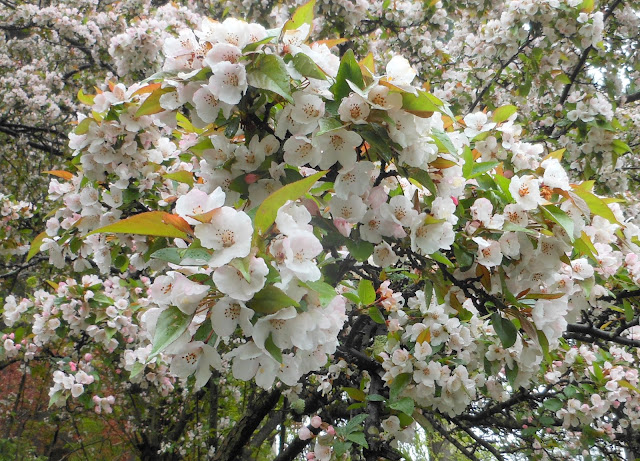Earthworms are happy here
Earthworms are a sign of health in an ecosystem. We've had the third wettest June on record in Massachusetts. Tons of rain and lots of autumn leaf mulch in and around many garden beds have made earthworms very happy. They also appreciate the fact that I never use chemicals or pesticides.
In places where I've raked leaves away, earthworms practically bubble to the surface. The soil beneath the leaves is black, healthy and crumbly. All the rain and lots of earthworm activity have accelerated leaf decomposition and delivered compost.
Left undisturbed, earthworms thrive and multiply under moist leaf litter. The ones you see collected in the blue bucket were relocated to leaf piles in the woods where they will continue to hasten our leaf composting.
Resist the temptation to move earthworms from moist leaf litter and plop them into full sun garden beds. They will die. They must have leaf cover, shade, moisture and nutrients from the leaves to survive and thrive.












